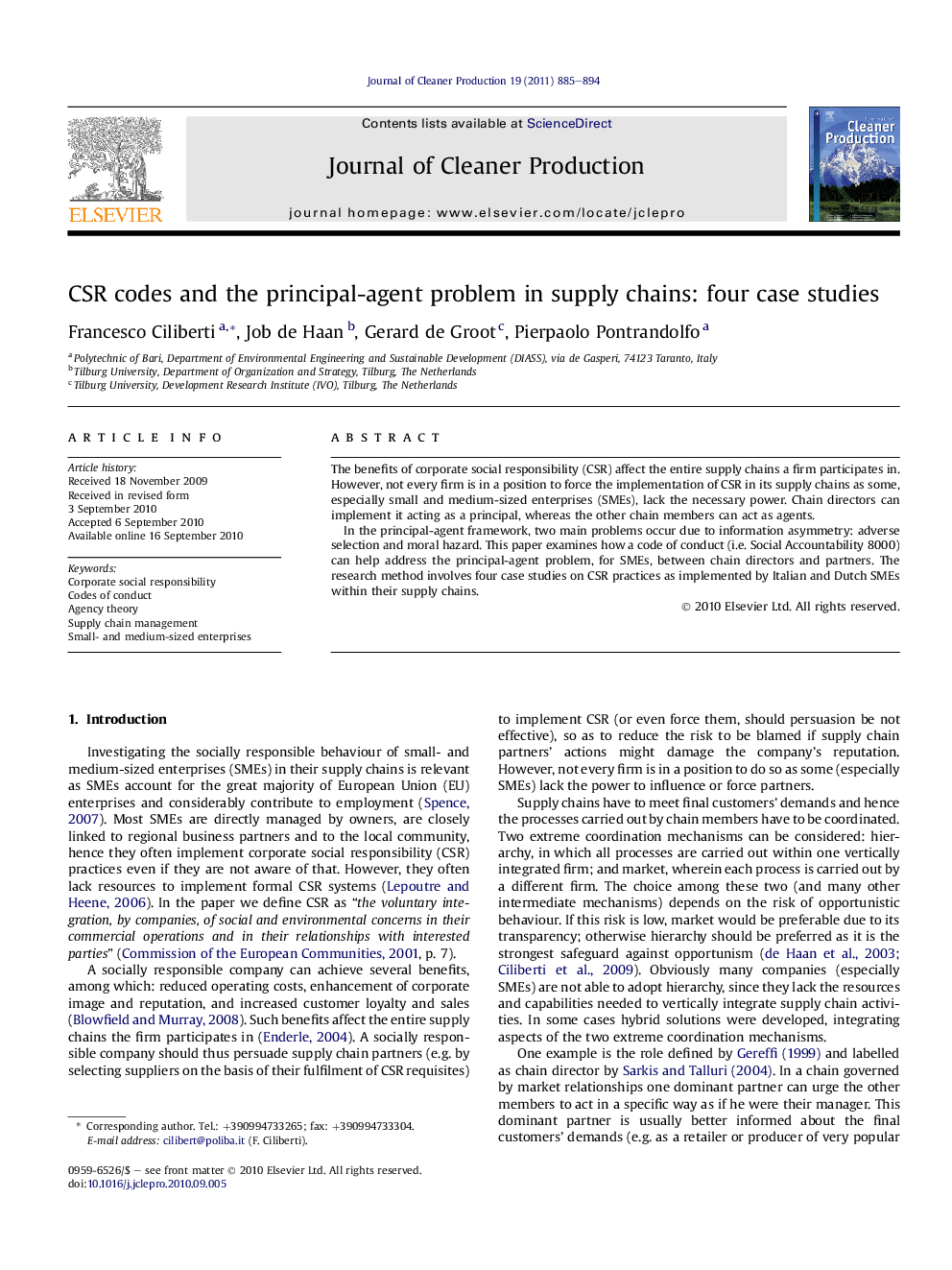| Article ID | Journal | Published Year | Pages | File Type |
|---|---|---|---|---|
| 1746019 | Journal of Cleaner Production | 2011 | 10 Pages |
The benefits of corporate social responsibility (CSR) affect the entire supply chains a firm participates in. However, not every firm is in a position to force the implementation of CSR in its supply chains as some, especially small and medium-sized enterprises (SMEs), lack the necessary power. Chain directors can implement it acting as a principal, whereas the other chain members can act as agents.In the principal-agent framework, two main problems occur due to information asymmetry: adverse selection and moral hazard. This paper examines how a code of conduct (i.e. Social Accountability 8000) can help address the principal-agent problem, for SMEs, between chain directors and partners. The research method involves four case studies on CSR practices as implemented by Italian and Dutch SMEs within their supply chains.
